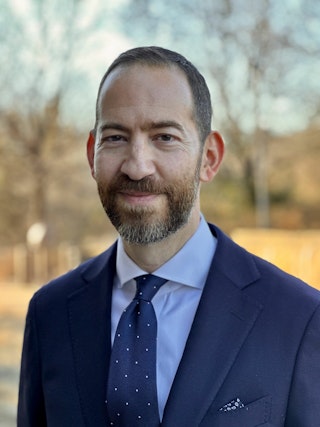Editor's Note
Since The Catalyst first launched in January 2016, we’ve organized each issue around a single theme. But this time – with our Fall 2023 issue – we decided to try something new. Instead of focusing all our essays on a specific topic, we’ve experimented with featuring a type of article instead. It’s a format I call The Fix: essays that describe how one government or organization somewhere on the planet has solved (or at least, made great progress fighting) a problem that the rest of the world still struggles with.
We had a few reasons for deciding to try this route. First, it cuts across all subjects and topics, which allows us to showcase the great variety of issues on which my very impressive colleagues here at the George W. Bush Institute work. And second, emphasizing fixes is a way to underline that, despite the growing pessimism about the direction of the country and the world, we at The Catalyst and the Bush Institute focus on coming up with solutions – and on telling the stories of how other hardworking folks are breaking new ground and actually getting stuff done.
In that spirit, Anne Wicks kicks off the issue by describing Mississippi’s revolution in reading education – and how, in less than 10 years, one of the country’s perennial underperforming states remade itself a national leader in child literacy and the science of teaching kids how to read.
Next, William McKenzie – a career newspaperman and my predecessor as The Catalyst’s editor – takes on a topic vital to the health of U.S. democracy: how to reverse the slide in the public’s faith in our news media. Chris Walsh tackles the same general topic – polarization and political dysfunction – from a different angle, telling the story of how a growing nationwide student organization is promoting pluralism and healthy debate among young Americans.
Turning to economics, J.H. Cullum Clark addresses America’s spiraling housing crisis – now a major drag on the country’s growth and an impediment to opportunity – and describes how Frisco, Texas, and a few other small cities have conquered NIMBY-ism and revolutionized the way they and their citizens think about growth. In a related piece, Alap Davé recounts how Utah managed to virtually eliminate chronic homelessness by using a data-driven, cost-effective model that both liberals and conservatives can embrace. And Albert Torres describes how, despite the emphasis the Biden Administration places on fighting corruption, the United States has become a leading haven for kleptocrats looking to legally hide their loot – and how Denmark, which once suffered similar problems, shows the way forward.
Speaking of fighting corruption, we’re proud to feature an exclusive interview with Miranda Patrucic, the Bosnian Editor-in-Chief of the Organized Crime and Corruption Reporting Project, in which she describes how networked journalism can expose transnational malfeasance. (Among its many accomplishments, the OCCRP helped break the Panama Papers scandal in 2016.)
Three other essays focus on international successes. In “Saving migrants from HIV/AIDS“, Dr. Deborah Birx and Hannah Johnson recount how Haiti and the Dominican Republic joined forces with the President’s Emergency Plan for AIDS Relief (PEPFAR) to beat back HIV/AIDS on the island of Hispaniola. Natalie Gonnella-Platts describes how one brave school in Afghanistan managed to defy the odds and the Taliban to provide quality education to hundreds of endangered girls (and continues to do so in exile today). Finally, I’ve written an essay telling the story of how, in less than a decade, Ukraine managed to turn its rotting, post-Soviet military into a fighting force capable of fending off a superpower – and its lessons for other countries, such as Taiwan, that are threatened by a massive neighbor.
I hope you’ll enjoy reading this issue as much as we enjoyed working on it, and that you’ll share the sense of hope these stories inspired in us. I’d love to hear your reactions and thoughts. And if you know about a surprising success story you’d like to share, I want to hear about that, too.

